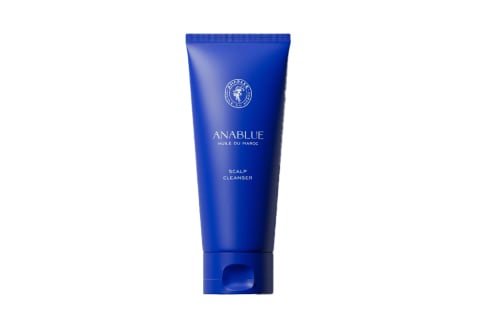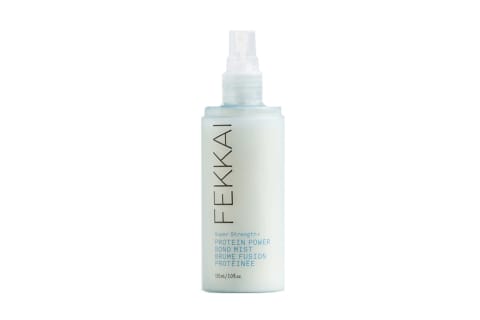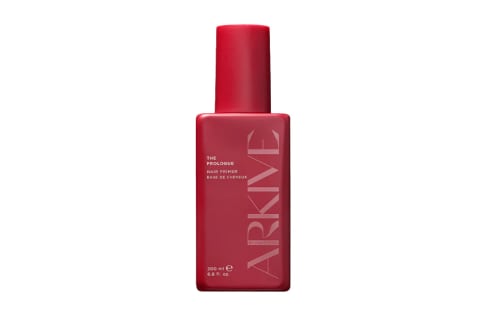Advertisement
Here's What Happened When I Skipped Shampoo & Conditioner For A Month

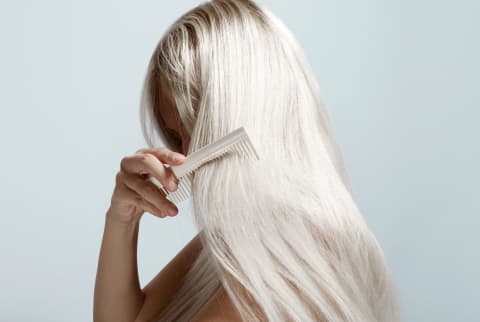
How often should you wash your hair? Beauty experts constantly field the question, but the answer isn't so cut and dried. Everyone has a different wash schedule based on their hair and scalp type, environment, and lifestyle habits. Ultimately, you just have to commit to a personal experiment (or many) and see what works best for your tresses.
Which brings me to my own little investigation: I skipped shampoo and conditioner for a month (yep, you read that right!) to see how my strands would react—here are the top lessons I learned.
Why no washing?
Again, there is no easy answer to how often you should wash your hair; it may take a bit of guess-and-test, as some of the surefire signs can confuse even the most seasoned beauty pros.
For example, oily roots may signal you need to wash less frequently. See, washing too often strips the scalp and tricks it into thinking it's dry. This, in turn, spurs the sebaceous glands into overdrive, which then makes your hair produce more oil faster. And the vicious cycle continues from there. So, to counteract oily roots, you might try to taper off your wash schedule, effectively "training" your scalp to produce less sebum.
I personally don't struggle too much with greasy roots (in fact, my hair falls on the drier side of the spectrum and tends to drink up all the oil it can cling to). However, I decided to take the plunge after meeting with Los Angeles–based creative Lauren Perez, who, hands down, has the softest, most enviable waves I've ever seen. She tells me she hasn't shampooed or conditioned her hair since launching her own brand, Anablue—and I was immediately influenced to try her three-step regimen.
So in the name of beauty journalism, I bid my beloved buttery hair masks adieu and committed to a "no 'poo, no condish" regimen for four weeks. Here's how it went.
What I learned
To be clear, I still cleansed my scalp once a week. While Perez doesn't use a traditional shampoo, she swears by a scalp scrub that lifts dirt and buildup.
Even if you eschew shampoo altogether, some sort of cleanse is crucial to avoid clogging the hair follicles and creating scalp inflammation. (For those who don't wish to forgo shampoo forever, the brand suggests swapping your usual rinse with the Scalp Cleanser one to two times per week, then following up with your regular conditioner.)
So to my friends and family members who scoffed when I told them about my little experiment: I still cleansed my scalp—I just wasn't cleansing my actual strands (which experts say you shouldn't do regardless).
Anyway! My Perez-inspired routine went as follows:
- Once a week, I globbed on hair oil from root to tip and rocked a slicked-back style before it was time to wash.
- In the shower, I used a scalp brush to massage in my scrub and remove any buildup.
- Post-rinse, I coated my lengths in Anablue's argan-infused hair serum, combed my strands, then air-dried.
- I tried not to use any other moisturizing products during that month, save for the hair serum, which I continued to slather on whenever my hair looked a little thirsty.
Honestly, the lack of shampoo wasn't too difficult to get used to. I only wash my hair once or twice a week, anyway, so it wasn't too much of a routine overhaul. The hardest part, for me, was skipping conditioner: I'm used to applying a very generous amount of product until my hair feels silky (and low-key, a little slimy).
It felt unnatural to step out of the shower with tangled hair, but my strands felt smooth again as soon as I applied the moisturizing hair serum.
It's crucial to feed nutrients back into the strand post-wash, but hairstylist Adam Reed, founder of Arkive Headcare, tells me you don't have to use conditioner. You can totally rely on hair oil or serum (like I did) and have your hair turn out just fine.
"Conditioners are designed to make your hair feel great," he shares. Your strands might feel a bit matted without it at first, but "as soon as you put the oil in and use that as your lubrication to get that smoothness, it will actually get that shine," he adds. For some finer-haired clients, Reed will actually skip conditioner, using oil, hair primer, and styling products to achieve a bouncier, fluffier 'do.
After that first wash, I grew accustomed to how my strands felt without conditioner—lighter, bouncier, and way less frizzy. Believe it or not, my hair actually looked thicker, too. "This could be because your hair is not being weighed down by the constant buildup of using both shampoo and conditioner on a regular basis," celebrity hairstylist Glenn Ellis tells me when I asked him about my fuller locks.
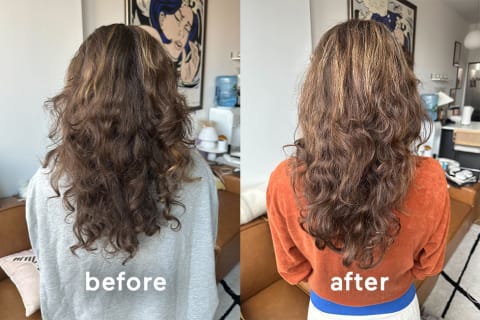
Still, I missed the silky-smooth feeling only a glob of conditioner could deliver. I ultimately went back to my dear deep conditioning masks post-experiment, but if this month taught me anything, it's that I don't actually need as much conditioner as I think. Rather than saturating my entire head from root to tip, I now simply rake it through the ends (as Ellis suggests). So my waves feel silky smooth yet retain their structure.
Hair training tips
Hoping to edit your own wash schedule? Here, a few hairstylist tips:
- Taper off your rinse: "You can oil-train hair by making sure you do not wash it every day and giving it some time to breathe," says Ellis. "This could start out by not washing your hair every other day, then progressively start washing your hair every three days instead." Over time, your scalp will "learn" to produce less oil, thus extending your wash day.
- Brush out the oil: As you reduce your rinses, you may notice your hair feeling a tad greasier than usual. If you can, Reed suggests brushing your locks daily to redistribute the oil. "Brushing is absolutely key because you don't want to allow the natural oils to clog up the root," he notes. "You will go through a phase of the hair feeling heavier and a little dirtier, but continuously brushing it is key."
- Moisturize strategically: As your hair accrues more oil at first, your regular conditioner might not cut it; you may find your favorite confection weighing down your locks. During this time, you can either use your conditioner sparingly on the ends or rely solely on lightweight leave-in products, like hydrating serums and mists, to add nutrients back into the strands.
- Refresh: "Again, you're going to go through periods of weeks where [your hair] will feel really heavy and dirty," says Reed. He recommends spritzing a refreshing hair mist on your lengths between washes. (You can also use dry shampoo; just be extra mindful of buildup.)
- Give it time: Patience is key! "If you're going shampoo-free—which a lot of people do every now and again to give everything a break—you do have to be prepared to let it balance," says Reed. For some, this process can take even longer than a month. It can take up to eight weeks for your hair to feel silky soft again, utilizing the natural oils on the scalp to keep it conditioned. So if it's been a month and you don't notice a difference, perhaps give it a few more weeks before reverting to your regular wash schedule.
Shop these products
The takeaway
I'd consider my "no 'poo, no condish" experiment a success. While I did miss my go-to conditioners and hair masks, my hair learned to stay moisturized without the help of a large, butter-thick dollop (or five). Somehow, my hair looks silkier, shinier, and bouncier—I even had a hairstylist recently tell me my hair feels "so much softer" at the wash bowl. I ultimately went back to my once-a-week shampoo cadence, but who knows? I might circle back next year for another monthlong hiatus.
